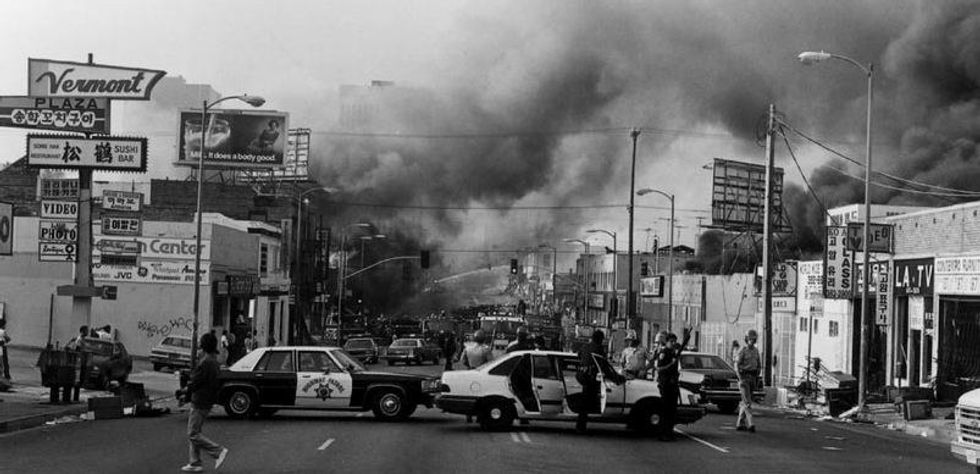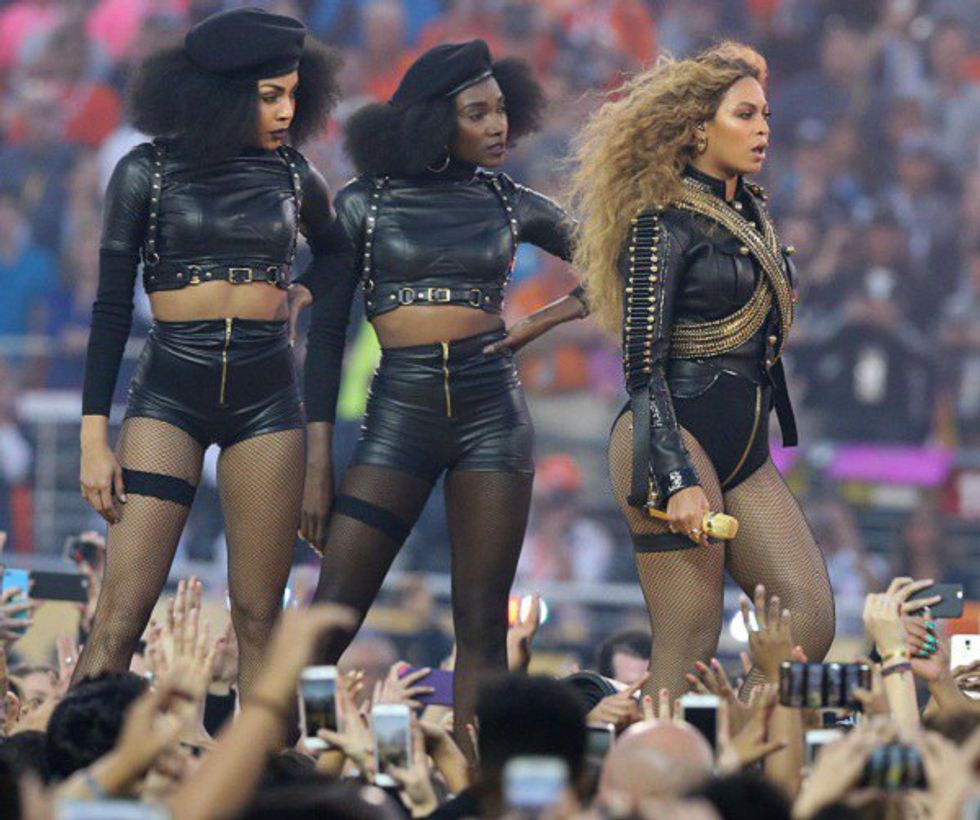I was born in 1994.
My only recollection of the Rodney King beating and the L.A. Riots was through stories and videos. My family always made me aware of who I was and the world we lived in, but also egrained a hope in me that we were headed toward better days. I, like most, saw President Barack Obama capture the hearts of a nation and become the first black president in United States history. I saw someone who looked, talked and listened to the same music as I did, hold the most powerful position in the world. At the time, I even believed that, as a nation, we may have reached the dream that the late Dr. King spoke of.
In the same year, Obama would win his second election, I felt that dream and hope snatched away from me. It was Feb. 26 when news that Trayvon Martin had been murdered. All this hope and joy quickly turned into doubt and worries. I was a 17-year old male, just like Trayvon. That doubt would be later turn into anger and frustration the summer night of 2013 when the verdict was announced and Trayvon’s murderer was going to live freely in society. Just when I thought that I would never have to live through my own Rodney King-like situation: Here it was.
The Middle Passage
Being the optimist I am, I thought that this would be a learning experience for everyone, that America would progress with our deep-rooted racial issues. However, the very next year brought stories such as Mike Brown, Eric Garner and a list that is so damn long I cannot finish it. I watched Ferguson and Baltimore erupt in anger and frustration just as my parents had with Watts and L.A. Riots. We had a black president, but I felt as if I was living in the late 1960s and '70s.
Just like those time periods, our country was about to enter a cultural revolution. From Black Power to Black Lives Matter. From Nina Simone to Beyoncé. From James Baldwin to Ta Nehisi-Coates. There was a Black Rocky. A black rapper is one of the influential evangelical Christians in the world. Cam Newton has captured the hearts of the NFL. One of the leaders of the Black Lives Matter movement has garnered enough popularity and political influence to be one of the leading candidates for the Mayor of Baltimore.
I'm running to be the next Mayor of Baltimore City. Please donate $10 to the campaign today at https://t.co/qPRZyHODy4!
— deray mckesson (@deray) March 6, 2016
Peak Blackness
As the nation prepared itself for a month of crowning a Super Bowl champion, the best films of the year and the best in music, they were also in for an unapologetic portrayal of the black experience. We first witnessed Beyoncé steal the spotlight from Coldplay at the 50th anniversary of the Super Bowl halftime show.
The Queen got the world in "Formation" by having a crew full of afro-haired black women wearing Black Panther-like garb and singing a song with lyrics such as, “My daddy Alabama, Momma Louisiana. You mix that Negro with that Creole make a Texas bama. I like my baby heir with baby hair and afros. I like my Negro nose with Jackson Five nostrils. Earned all this money but they never take country out me. I got a hot sauce in my bag, swag.” Singing in a twang that made me feel like I was back visiting my grandma’s house in deep south Alabama.
We then witnessed Kendrick Lamar have the most Grammy nominations for an album since Michael Jackson’s "Thriller" (maybe the greatest album of all time). While performing at the Grammys, Kendrick breaks free from his imprisonment to go “home” and have tribal dances with his brothers in Africa. He then steps to a mic and raps with unmatched passion and concludes his performance with a visual of Africa with Compton in the middle.
And just when the world thought that the Oscars had left out the Black experience, they invited the legend Chris Rock to host it. Chris not only ripped the racial issues our country is working through, he channeled his inner Malcolm X and also spoke to his people at the same time. Culturally we are experiencing “peak” blackness.
We Gon' Be Alright
So as I reflect on the 25 years it has been since those crazy nights in Los Angeles, I feel as though I have not only found more of a sense of hope, but also a sense of pride. You see through this pain and frustration, I have had to truly learn what it means to be black in America. While our people have been oppressed, mistreated and underrepresented, we were still created in the likeness of God — that is beautiful. While our culture may be different, it is still beautiful and should be appreciated. And while we may experience pain, if God got us, we gon’ be alright.



















